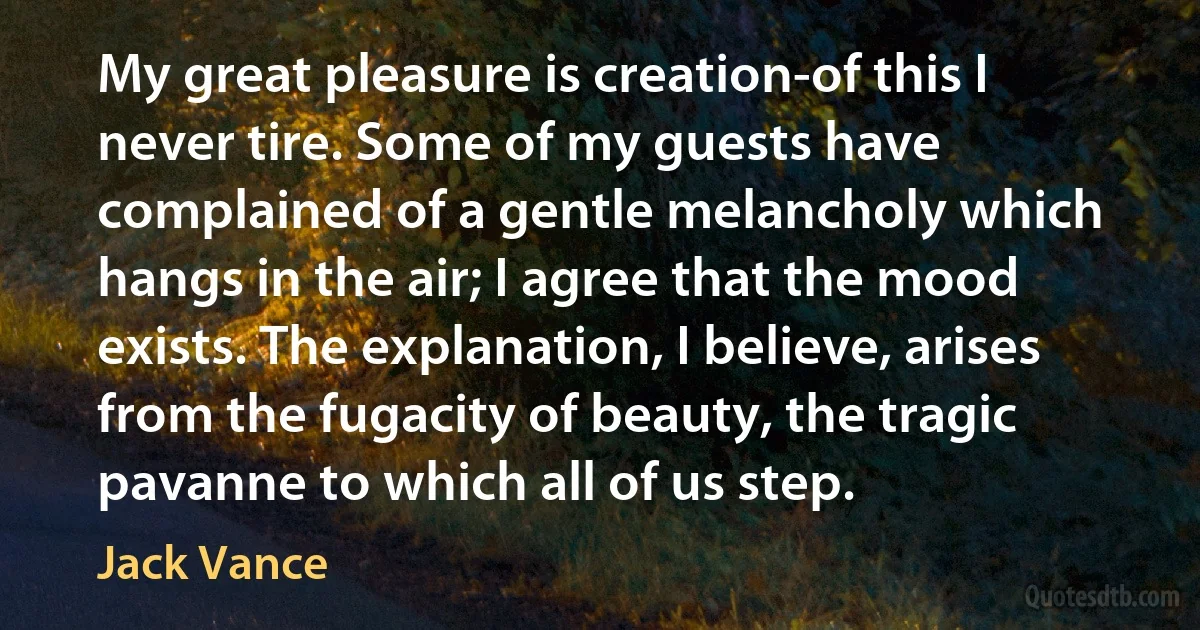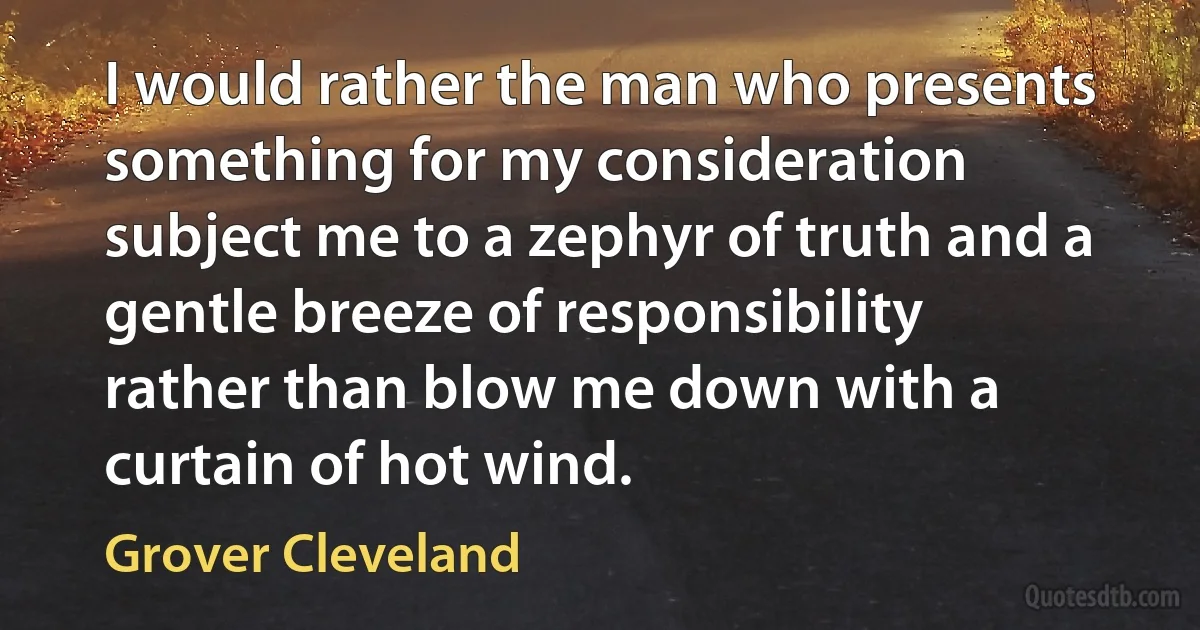Gentle Quotes - page 10
Sweet stream that winds through yonder glade,
Apt emblem of a virtuous maid
Silent and chaste she steals along,
Far from the world's gay busy throng:
With gentle yet prevailing force,
Intent upon her destined course;
Graceful and useful all she does,
Blessing and blest where'er she goes;
Pure-bosom'd as that watery glass,
And Heaven reflected in her face.

William Cowper
The use of plants is all our life long of that universal importance and concern that we can neither live nor subsist with any decency and convenience, or be said, indeed, to live at all without them. Whatsoever food is necessary to sustain us, whatsoever conteibutes to delight and refresh us, is supplied and brought forth out of that plentiful and abundant store. And ah! how much more innocent, sweet, and healthful is a table covered with those than with all the reeking flesh of butchered and slaughtered animals. Certainly man by nature was never made to be a carnivorous animal, nor is he armed at all for prey and rapine, with jagged and pointed teeth and crooked claws sharpened to rend and tear, but with gentle hands to gather fruit and vegetables, and with teeth to chew and eat them.

John Ray
What had become of his dream of idylls, his gentle bookish romance? Vanished before a reality which smacked horribly of crude melodrama and possibly of sordid crime. His gorge rose at the picture, but a thought troubled him. Perhaps all romance in its hour of happening was rough and ugly like this, and only shone rosy in the retrospect. Was he being false to his deepest faith?

John Buchan
Under the pressure of a war to the death, all that was best, all that was most human and gentle on each side was crushed out by military necessity. On the one side, the passion for a unified world, where every individual should live a free and full life in service of the world community, was overcome by the passion to punish spies, traitors, and heretics. On the other, vague and sadly misguided yearnings for a nobler, less materialistic life were cleverly transformed by the reactionary leaders into vindictiveness against the revolutionaries.

Olaf Stapledon
You've seen the refugees heading nowhere,
you've heard the executioners sing joyfully.
You should praise the mutilated world.
Remember the moments when we were together
in a white room and the curtain fluttered.
Return in thought to the concert where music flared.
You gathered acorns in the park in autumn
and leaves eddied over the earth's scars.
Praise the mutilated world
and the gray feather a thrush lost,
and the gentle light that strays and vanishes
and returns.

Adam Zagajewski
[Description of Britain] Its plains are spacious, its hills are pleasantly situated, adapted for superior tillage, and its mountains are admirably calculated for the alternate pasturage of cattle, where flowers of various colours, trodden by the feet of man, give it the appearance of a lovely picture. It is decked, like a man's chosen bride, with divers jewels, with lucid fountains and abundant brooks wandering over the snow white sands; with transparent rivers, flowing in gentle murmurs, and offering a sweet pledge of slumber to those who recline upon their banks, whilst it is irrigated by abundant lakes, which pour forth cool torrents of refreshing water.

Gildas
But there are motifs that would need three or four months' work, which could be done, as the vegetation doesn't change here. There are the olive trees and the pines that always keep their leaves. The sun is so fierce that objects seem to be silhouetted, not only in black or white, but in blue, red, brown, violet. I may be wrong, but this seems to be the very opposite of 'modeling'. How happy the gentle landscapists of Auvers would be here, and that [con, or 'bastard'? ] Guillemet.

Paul Cézanne
But how to write about a man who lived such a contemplative life marked by so few striking external events? He was extraordinarily private, and he kept his own person invisible in his writing. I had none of the material that ordinarily lends itself to narrative-no family dramas, no love affairs, jealousies, curious anecdotes, feuds, spats, or reunions. He had a large correspondence, but after his death his colleagues followed his instructions and removed almost all personal comments from his letters. No, not much external drama in his life: most scholars regard Spinoza as a placid and gentle soul-some compare his life to that of Christian saints, some even to Jesus.

Baruch Spinoza



